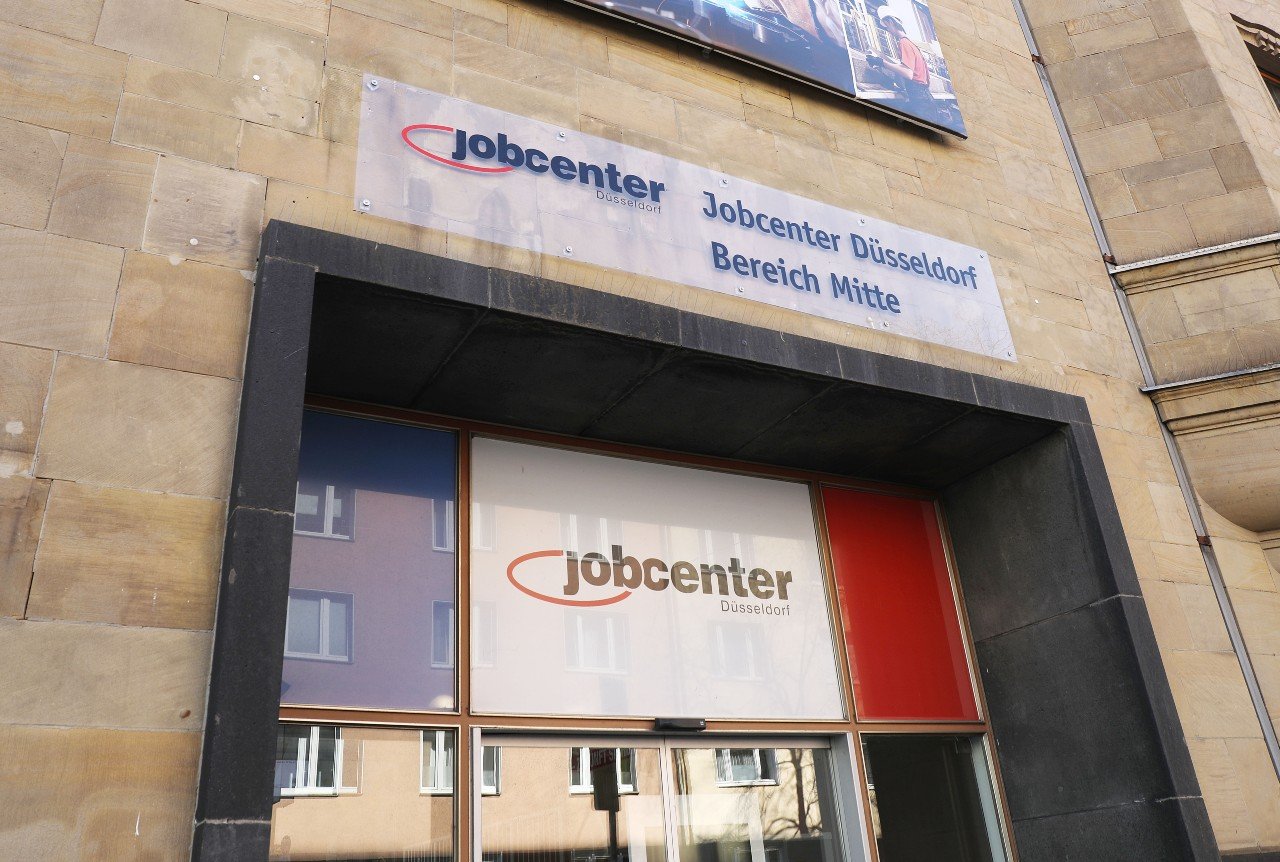How Germany wants to ease employment rules for 'tolerated' migrants

Many people live in Germany with an unclarified status. These groups could soon find easier routes into work under new plans unveiled by the government.
As Germany's government struggles to fill its labour shortages, it is now looking a pool of workers that previously struggled to enter into work: asylum applicants and foreigners on a 'tolerated' status, or Duldung.
Under new plans passed by the cabinet, those seeking asylum and 'tolerated' migrants will be able to enter employment after six months in Germany.
Previously, childless asylum seekers had to wait nine months in temporary housing before they could receive a work permit in Germany. For 'tolerated' migrants, the journey into work could take several months or even years.
READ ALSO: How to get fast-track permanent residency rights in Germany
As of July 2022, almost 250,000 people lived in Germany on a 'tolerated' status. This status applies to people with no specific residence permit or right to remain but who cannot be deported for various reasons, such as family or ill health.
Generally, people on tolerated statuses cannot work or claim benefits, though they can sometimes switch to a long-term work or study toleration status.
Under the approved plans, the traffic light coalition wants to change the cut-off date regulation for the so-called employment toleration, or Arbeitsduldung.

The entrance to the Jobcenter in Düsseldorf, North Rhine-Westphalia. Photo: picture alliance/dpa | Oliver Berg
This means that people who arrived in Germany by the end of 2022 can obtain a longer-term toleration that would also allow them to take up employment. At the moment, only people who arrived in Germany before August 1st, 2018 can take advantage of this option.
READ ALSO: How 'tolerated' migrants could soon gain residency rights in Germany
In these cases, the waiting period before employment will be reduced from 18 to twelve months, while minimum working hours will be cut from 35 to 20.
The move follows a previous relaxation of rules for long-term tolerated migrants. Under the Chancenaufenthaltsgesetz that entered into force this year, people who had lived in Germany on a tolerated status for five years or more by October 31st, 2022 would be given 18 months to meet the criteria for permanent residence and apply.
Persons from so-called safe countries of origin who have filed "obviously unfounded" asylum applications or who have refused to clarify their identity will not be able to benefit from the facilitations that have now been introduced, according to the government's resolution paper.
The government is also aiming to tighten up information-sharing between immigration offices and the job. centre so that the authorities are informed automatically when a foreigner moves away or stops claiming benefits.
New paths for asylum seekers
The transition from asylum-seeker status into the world of work is also being eased in the governments new skilled worker immigration law.
Refugees who enter the country before March 29th 2023 can switch statuses much more easily if they have both a qualification and a corresponding job offer in Germany.
In these cases, they can end their application for asylum and switch onto a skilled worker permit without having to leave the country and go through another visa procedure while abroad.
READ ALSO: 8 things to know about Germany's new skilled worker immigration law
Comments
See Also
As Germany's government struggles to fill its labour shortages, it is now looking a pool of workers that previously struggled to enter into work: asylum applicants and foreigners on a 'tolerated' status, or Duldung.
Under new plans passed by the cabinet, those seeking asylum and 'tolerated' migrants will be able to enter employment after six months in Germany.
Previously, childless asylum seekers had to wait nine months in temporary housing before they could receive a work permit in Germany. For 'tolerated' migrants, the journey into work could take several months or even years.
READ ALSO: How to get fast-track permanent residency rights in Germany
As of July 2022, almost 250,000 people lived in Germany on a 'tolerated' status. This status applies to people with no specific residence permit or right to remain but who cannot be deported for various reasons, such as family or ill health.
Generally, people on tolerated statuses cannot work or claim benefits, though they can sometimes switch to a long-term work or study toleration status.
Under the approved plans, the traffic light coalition wants to change the cut-off date regulation for the so-called employment toleration, or Arbeitsduldung.

This means that people who arrived in Germany by the end of 2022 can obtain a longer-term toleration that would also allow them to take up employment. At the moment, only people who arrived in Germany before August 1st, 2018 can take advantage of this option.
READ ALSO: How 'tolerated' migrants could soon gain residency rights in Germany
In these cases, the waiting period before employment will be reduced from 18 to twelve months, while minimum working hours will be cut from 35 to 20.
The move follows a previous relaxation of rules for long-term tolerated migrants. Under the Chancenaufenthaltsgesetz that entered into force this year, people who had lived in Germany on a tolerated status for five years or more by October 31st, 2022 would be given 18 months to meet the criteria for permanent residence and apply.
Persons from so-called safe countries of origin who have filed "obviously unfounded" asylum applications or who have refused to clarify their identity will not be able to benefit from the facilitations that have now been introduced, according to the government's resolution paper.
The government is also aiming to tighten up information-sharing between immigration offices and the job. centre so that the authorities are informed automatically when a foreigner moves away or stops claiming benefits.
New paths for asylum seekers
The transition from asylum-seeker status into the world of work is also being eased in the governments new skilled worker immigration law.
Refugees who enter the country before March 29th 2023 can switch statuses much more easily if they have both a qualification and a corresponding job offer in Germany.
In these cases, they can end their application for asylum and switch onto a skilled worker permit without having to leave the country and go through another visa procedure while abroad.
READ ALSO: 8 things to know about Germany's new skilled worker immigration law
Join the conversation in our comments section below. Share your own views and experience and if you have a question or suggestion for our journalists then email us at [email protected].
Please keep comments civil, constructive and on topic – and make sure to read our terms of use before getting involved.
Please log in here to leave a comment.